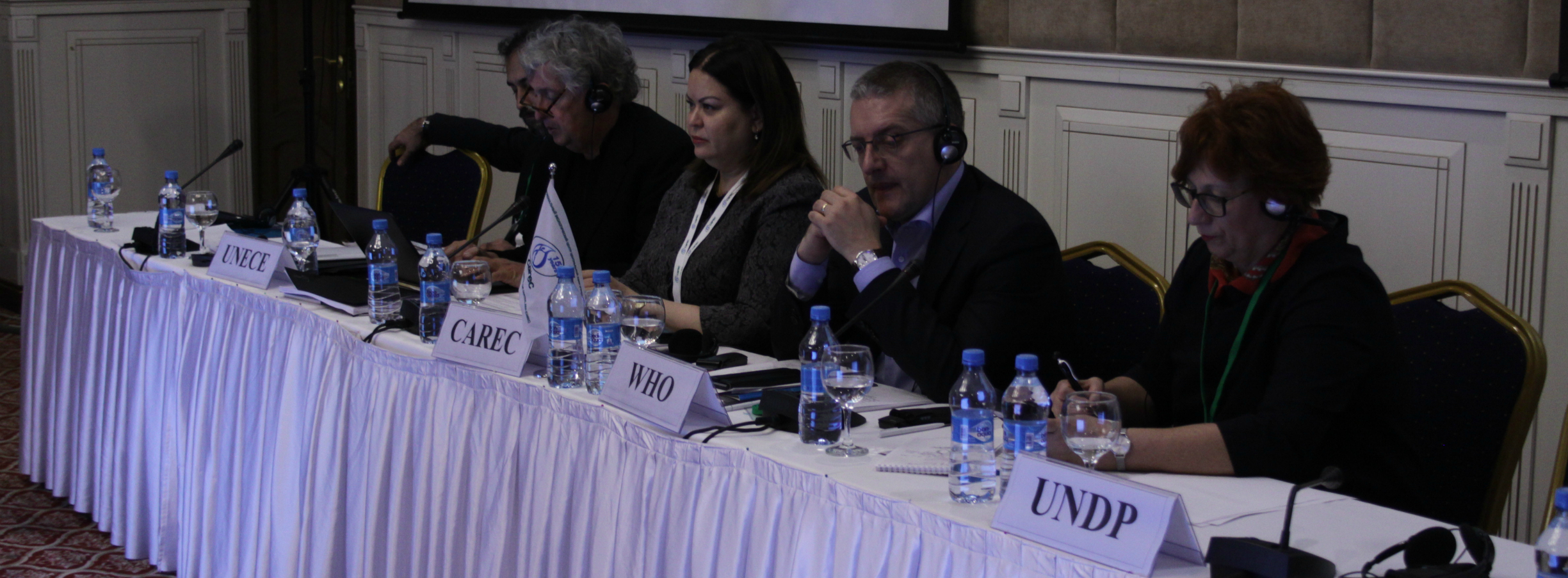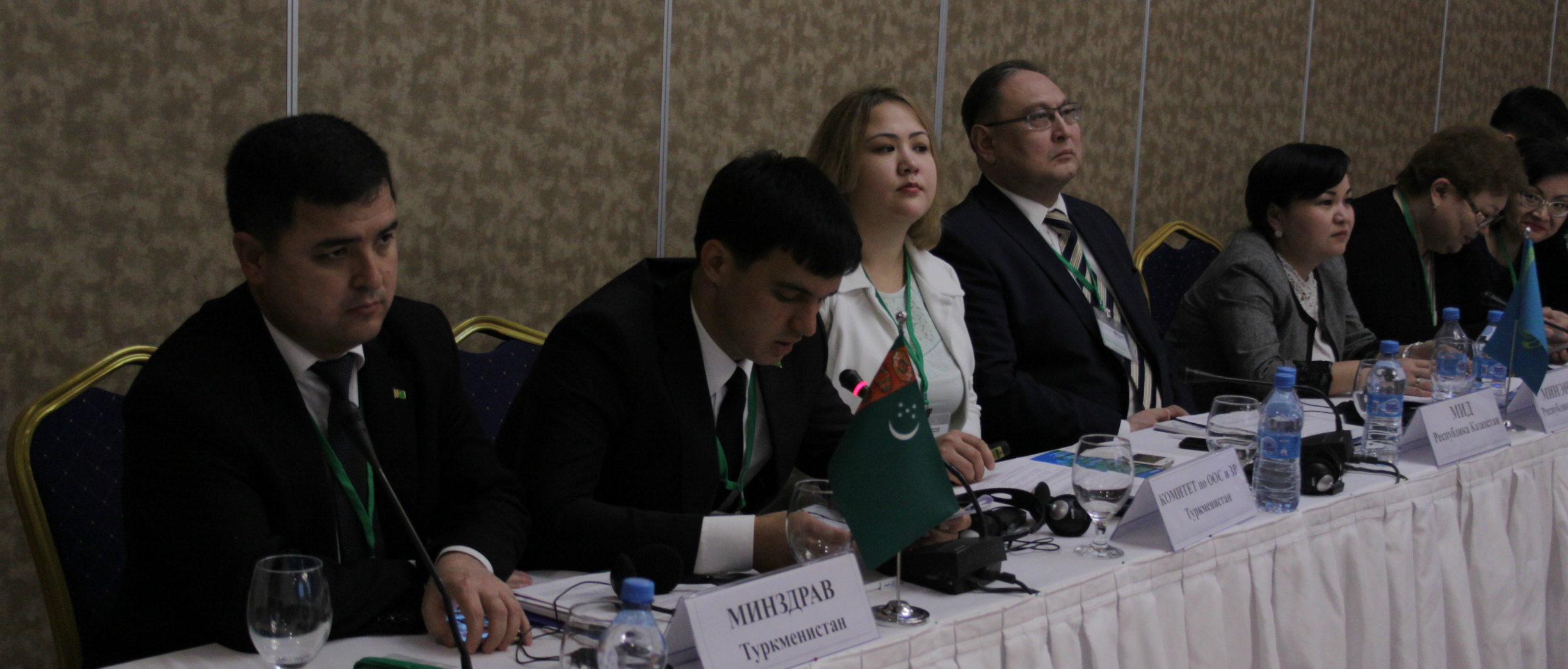Outcomes of the meeting of the World Health Organization and Central Asian representatives
According to the World Health Organization (WHO), a quarter of all diseases in the region is due to environmental factors. Essential barriers that have an influence on sustainable development in Central Asia are issues that are related to access and quality of drinking water, air pollution, as well as issues that are related to extreme weather conditions due to climate change.
________________________
For the first time, representatives of the Central Asian countries and WHO came together around the negotiating table in order to assess the health impact of the environment.
On 28th and 29th of March 2017, Almaty hosted a regional advisory meeting. It was dedicated to European process on “Environment and health”. The organizer of the meeting was CAREC in cooperation with Regional office of the WHO for Europe.
Participants discussed the development of interaction between Central Asian countries and WHO in the field of reducing environmental factors affecting health of the population.

"This meeting showed the commonality of interests in the region of Central Asia, the willingness of countries to cooperate in addressing issues related to the environment and health protection. And we can say with certainty that the CAREC program on environment and health is moving to a new stage of cooperation on three levels: global, regional and national", manager for the Environment and Health Program commented on the meeting.
WHO informed the relevant ministries and agencies about preparations for the Sixth European Conference of Environment and Health Ministers in Ostrava (Czech Republic). In particular, the participants discussed the main tasks of the Working Group on Environment and Health, the penultimate meeting of which will be held in Copenhagen (Denmark), on 10-11 April this year and the final draft of the Ministerial Declaration.
“We are pleased to note CAREC's efforts to improve environmental and health issues in the countries of the region. The high level of representativeness of the countries, their readiness for the meeting, indicates that a lot of practical work have been done by countries on the national level, and governments pay special attention to these issues. WHO considers CAREC as a sustainable platform for cooperation in the region and for attraction of the world community attention to your achievements and issues that need support, "concluded Mr. Srdan Matic, coordinator of the Department of Environment and Health and Management of Health and Welfare at the WHO Regional Office for Europe.
The meeting is confined to the new stage of CAREC Environment and Health Program. The program's actions are aimed at preventing and reducing the number of diseases, injuries and deaths coming from environmental factors. This is achieved by identifying appropriate interrelations; primary preventions and providing influence on the adoption of agreed and strategic measures in all sectors.

Enquiry:
In 1989, due to increasing amount of evidence that indicate negative impact of dangerous environment, the WHO Regional Office for Europe initiated the first international environmental and health protection process. The goal was to develop a broad approach on primary prevention from a public health perspective, to eliminate environmental factors that are harmful to health.
The European Environment and Health Process (EEHP) is being developed at ministerial conferences, the only events of its kind that attract stakeholders from various sectors of the economy. They identify problems in the field of environment and health, identify priority directions for work, agree on commitments, and form pan-European policies and activities in the field of environment and health protection.
The Ministerial Conference is the highest political body, which sums up the results of the work done by 53 member countries of the WHO for 5-7 years. These countries are implementing projects in the field of "Environment and health", which are also reported at the ministerial conference and share their experience.
Representatives of Central Asian countries are invited to the conferences, where they take part in discussions, in plenary and themed sessions.
At the First Ministerial Conference in Frankfurt in 1989, representatives of the WHO European Member States, the European Commission and their partners adopted the European Charter on Environment and Health Protection, pledging to respect the basic principles, mechanisms and priorities for future work. Participants of the conference encouraged WHO to establish a European Center for Environment and Health Protection, which remains as the main institution of the EEHP to this day.
The Sixth European Conference of Environmental and Health Ministers, which will be held Ostrava, Czech Republic, from 13th to 15th of June is a crucial step in the European Environment and Health process.
Member countries of WHO in the European Region, including Central Asian countries, will arrive in Ostrava in order to adopt the Ministerial Declaration and Plan of Action for the next decade with clear targets for reducing the adverse environmental impact on public health.
The Sixth Conference will define the priorities for ecology and health in Europe for the 21st century, strengthen the engagement and commitment of WHO member countries to the "Environment and health" process, and will focus on specific mechanisms and actions to achieve the Sustainable Development Goals of Agenda 2030.
